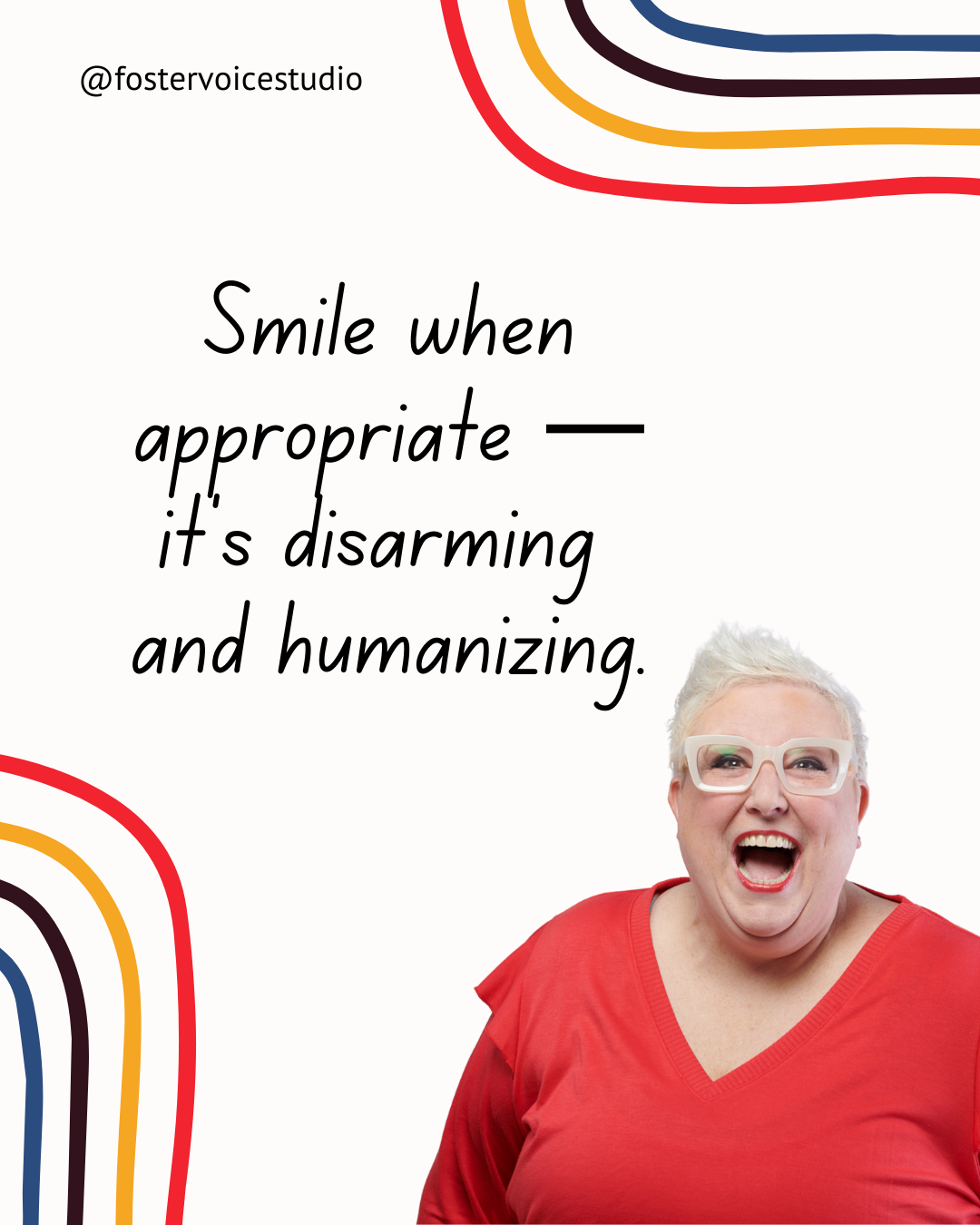The Power of a Genuine Smile
A sincere smile can break down barriers.
It creates a sense of warmth, approachability, and quiet confidence—three qualities jurors instinctively trust.
In a courtroom, where the stakes are high and tension runs deep, a well-timed smile reminds jurors you’re not just a legal technician—you’re a person. And that’s vital for establishing emotional connection.
But here's the problem…
Don’t Perform Humanity—Be Human
Many trial attorneys are advised to smile strategically—to “soften” their delivery or “humanize” themselves during key moments.
Let’s just say it: that’s manipulation masquerading as connection.
And it’s not fooling anyone.
Your jury can feel the difference between real warmth and a calculated cue. They don’t want to be managed—they want to be met.
So don’t use your smile as a courtroom tactic.
Use it as a reflection of genuine presence.
Why It’s Harder Than It Sounds
Of course, this is easier said than done. You’re not distant or robotic on purpose—you’re deep in the weeds:
-
Strategizing and tracking your case
-
Noticing signs of bias in the jury box
-
Watching for weaknesses in opposing testimony
-
Holding onto mountains of information
In short, you’re in your head—and that’s necessary.
But when you live there too long, it’s easy to miss the human moments unfolding around you.
Moments that build trust.
Moments that establish connection.
Moments that make your case real for jurors.
Build the Skill of Being Present
Authenticity isn’t something you switch on when you walk into court. It’s something you practice—long before opening statements.
Try this in low-stakes situations:
✅ Listen without crafting your next response.
✅ Let yourself genuinely react—to people, to stories, to moments.
✅ Smile when something moves you—not when it’s “time.”
Presence is a muscle. Emotional availability is a skill. And the more you train it, the more natural it becomes—even under pressure.
Why This Matters for Jurors
When you're authentic, your jury feels it.
When you're grounded, your voice carries authority.
When you're present, your message lands.
And when you're real, you give jurors permission to be real with you—to trust you, to follow your lead, to care about your client’s story.
That’s courtroom communication at its most powerful.
Be real. Be human. And keep fostering your voice.
LET'S STAY CONNECTED
You’re already speaking. Let’s make it count.
Get one smart, time-saving vocal tip each Tuesday to help jurors learn faster, retain more, and stay connected — so your message lands the first time.
You're safe with me. I'll never spam you or sell your contact info.


